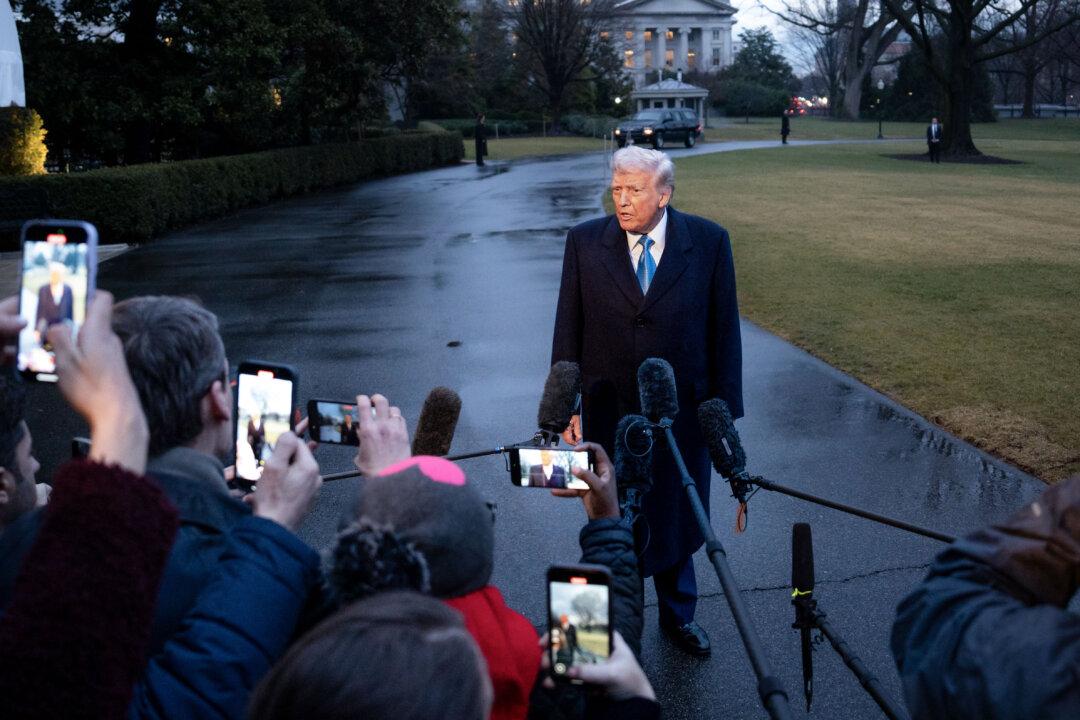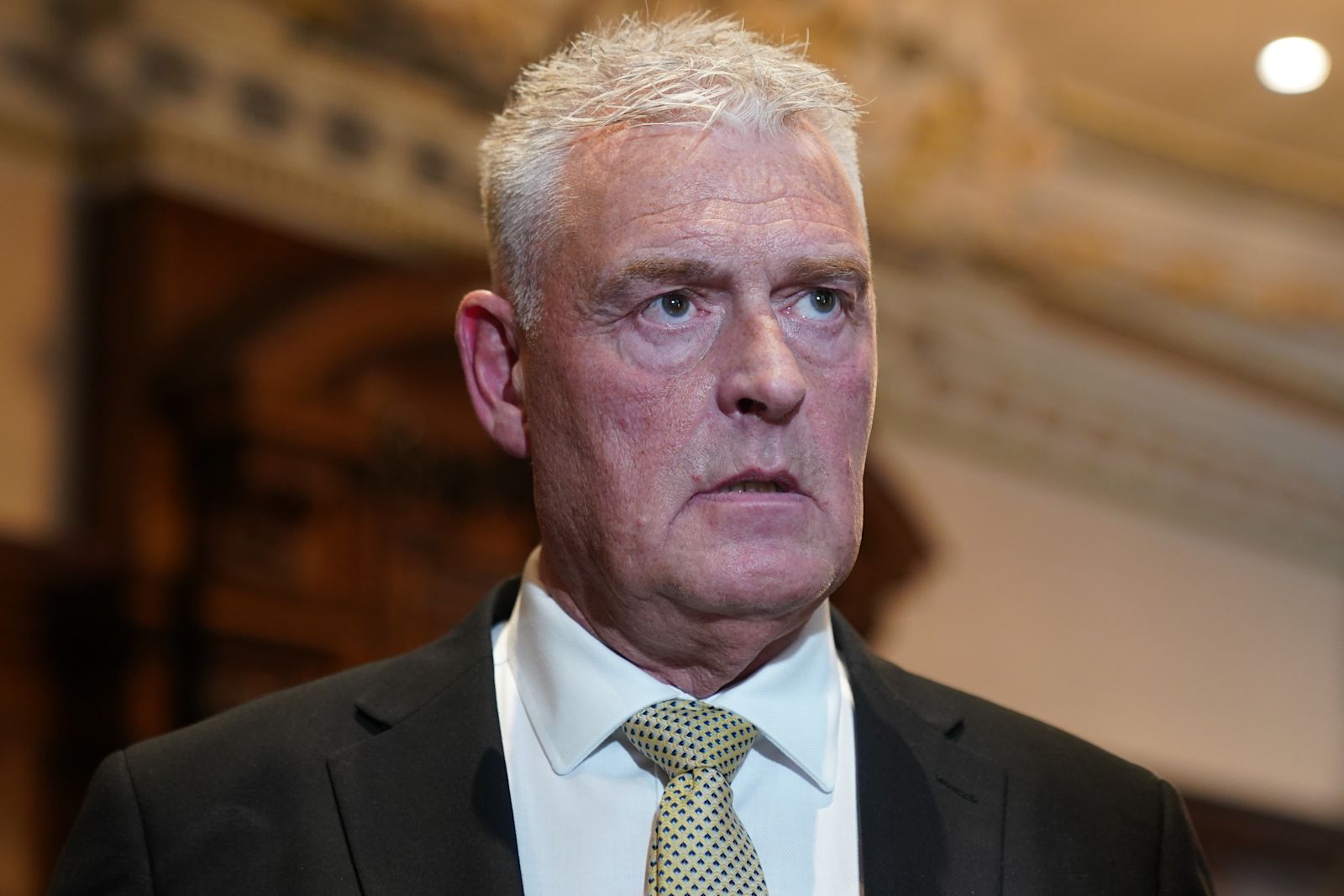Legal Battle: Trump Defends Tariffs Against Judicial Scrutiny

Table of Contents
The Basis of Trump's Tariff Policies and their Legal Justification
The Trump administration justified its tariff policies primarily on grounds of national security and the correction of perceived unfair trade practices by other countries, particularly China. These actions largely relied on Section 301 of the Trade Act of 1974, which grants the President broad authority to take action against foreign practices deemed unfair or unreasonable. The administration argued that these tariffs were necessary to protect American industries and jobs from predatory pricing and unfair competition.
- Specific examples of tariffs: Significant tariffs were imposed on steel and aluminum imports, as well as on a wide range of Chinese goods, including solar panels and telecommunications equipment.
- Alleged unfair trade practices: The administration cited various practices as justification, such as intellectual property theft, forced technology transfer, and government subsidies.
- Relevant Executive Orders: Several executive orders were issued to implement and expand the tariff programs, further solidifying the administration's commitment to this approach.
Key Legal Challenges to Trump's Tariffs
Numerous businesses, particularly importers affected by the tariffs, and foreign governments challenged the legality of these measures. Their arguments centered on several key legal points:
-
Violation of international trade agreements: Challengers argued that the tariffs violated existing agreements, such as those under the World Trade Organization (WTO), leading to retaliatory measures and trade disputes.
-
Exceeding Presidential Authority: Opponents questioned whether the President had the constitutional authority to impose tariffs on such a broad scale without Congressional approval, arguing it violated the principle of separation of powers.
-
Violation of the Commerce Clause: Some legal challenges argued that the tariffs violated the Commerce Clause of the US Constitution, which grants Congress the power to regulate interstate and international commerce.
-
Major lawsuits: Several major lawsuits were filed in the Court of International Trade (CIT) and subsequently appealed to federal circuit courts.
-
Courts involved: The CIT, along with various federal appellate courts, played key roles in hearing these challenges.
-
Significant developments: Preliminary rulings varied, with some courts upholding certain aspects of the tariffs while others found them to be partially or completely unlawful.
Arguments Presented by Both Sides in the Legal Battle
The Trump administration consistently defended its tariffs, arguing that they were necessary to protect national security and address unfair trade practices. They cited economic data suggesting that the tariffs were effective in boosting certain domestic industries and reducing trade imbalances.
Conversely, the challenging parties presented counterarguments, highlighting the negative economic consequences of the tariffs, including increased prices for consumers, job losses in industries dependent on imported goods, and harm to global trade relations.
- Key legal precedents: Both sides cited numerous legal precedents related to presidential authority in trade matters and the interpretation of international trade agreements.
- Economic data: Economic data and expert testimony were central to the arguments of both sides, with differing interpretations of the same data being a common point of contention.
- Expert opinions: Legal proceedings involved extensive testimony from economists, trade experts, and other specialists.
The Role of International Trade Agreements
The tariffs had significant implications for existing international trade agreements, particularly those under the WTO. The imposition of tariffs led to retaliatory measures by other countries, escalating trade tensions and disrupting global supply chains.
- Specific agreements affected: WTO agreements, including those related to dispute resolution and anti-dumping measures, were directly impacted.
- Retaliatory measures: Countries affected by the tariffs imposed their own tariffs and trade restrictions in response.
- Impact on global supply chains: The tariffs disrupted established supply chains, increasing costs and uncertainty for businesses worldwide.
Potential Outcomes and Future Implications
The legal battles surrounding Trump's tariffs had several potential outcomes, ranging from the full or partial invalidation of the tariffs by the courts to their eventual upholding. These outcomes have significant long-term implications for US trade policy and the global economy.
- Possible scenarios: Court rulings could lead to the removal of some or all tariffs, potentially requiring renegotiation of trade agreements or adjustments to US trade policy.
- Changes to future trade negotiations: The legal challenges could impact future trade negotiations, influencing how the US approaches international trade agreements and disputes.
- Economic forecasts: Economic forecasts under different outcomes ranged from a boost in certain domestic industries to negative impacts on overall economic growth and consumer prices.
Analyzing the Legal Battle Surrounding Trump's Tariffs
The legal challenges to Trump's tariffs represent a significant chapter in US trade policy. The arguments raised, the court decisions, and the broader economic and geopolitical consequences have lasting implications for the US and the global trading system. The potential long-term impact of the court rulings extends far beyond the specific tariffs themselves, affecting how future administrations approach trade negotiations and the overall balance of power in the global economy. To stay informed about the ongoing "Legal Battle: Trump Defends Tariffs Against Judicial Scrutiny" and its implications, continue following updates from reputable news sources and legal websites. Further research into specific cases and aspects of this significant trade dispute is encouraged.

Featured Posts
-
 Manfaatkan Limbah Cangkang Telur Petunjuk Praktis Untuk Meningkatkan Produktivitas Tanaman Dan Kesehatan Hewan Peliharaan
May 03, 2025
Manfaatkan Limbah Cangkang Telur Petunjuk Praktis Untuk Meningkatkan Produktivitas Tanaman Dan Kesehatan Hewan Peliharaan
May 03, 2025 -
 Lee Anderson Celebrates Major Political Win With Councillor Defection
May 03, 2025
Lee Anderson Celebrates Major Political Win With Councillor Defection
May 03, 2025 -
 This Countrys Hidden Gems An Off The Beaten Path Adventure
May 03, 2025
This Countrys Hidden Gems An Off The Beaten Path Adventure
May 03, 2025 -
 Daily Lotto Thursday 17th April 2025 Winning Numbers
May 03, 2025
Daily Lotto Thursday 17th April 2025 Winning Numbers
May 03, 2025 -
 Sounesss Verdict Should Aston Villa Sign Marcus Rashford
May 03, 2025
Sounesss Verdict Should Aston Villa Sign Marcus Rashford
May 03, 2025
